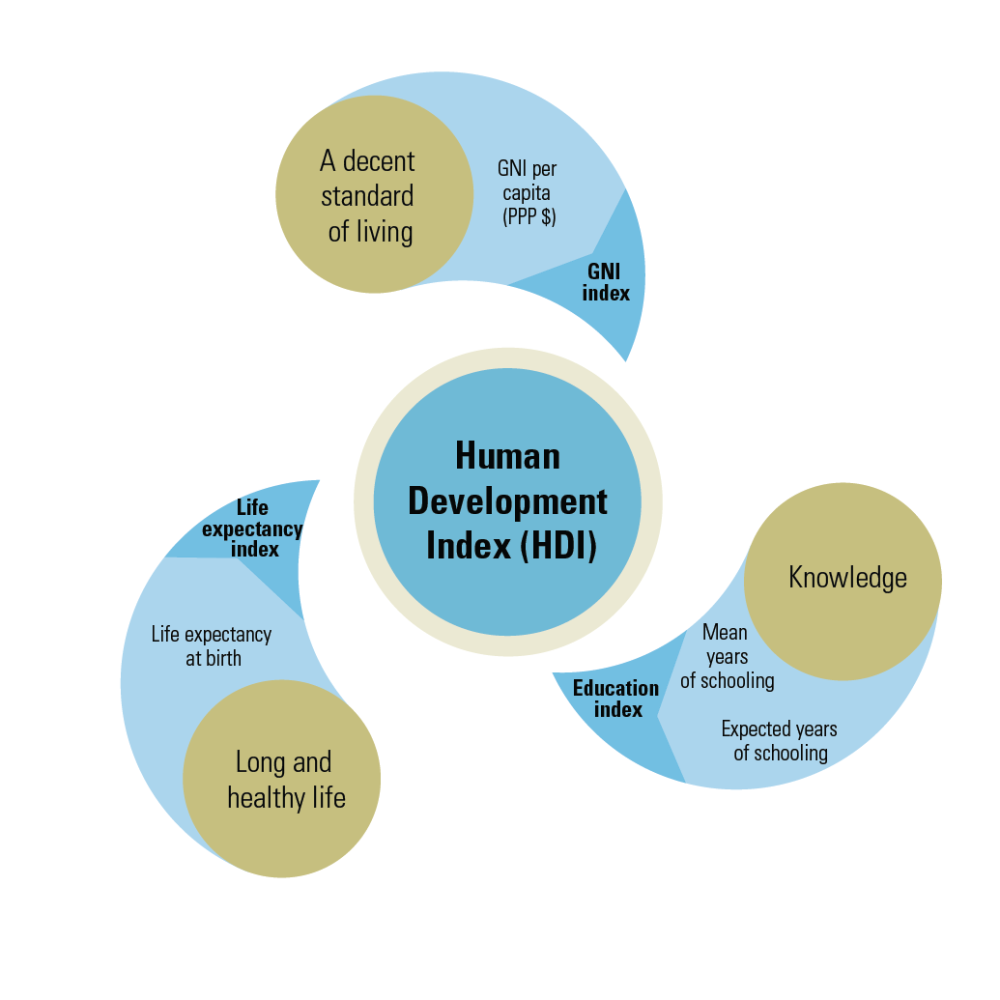What is Wealth? Part 2: "Everything Else Has To Come After"
Wealth: maybe not what you think and certainly isn't money.
Societal Wealth
This is Part 2 of a series on Wealth. Part 1 - The Trouble and Toil is here
This post is about the kind of wealth that sustains life, separates us from the harshness of nature, and enables a comfortable and resilient society.
Societal Wealth is not just some version of GDP/capita, it is about resiliance and comfort as well as individual freedoms. Indeed, once we no longer worry about survival, societal wealth allows individuals to worry about “Esteem” and pursue “Self-Actualization”. Not-ironically, cheap and abundant energy also pays for good stewardship of the environment1.
Such wealth comes from somewhere, it is not fairy-dust or wishful-thinking; there is no Magic Money Tree, no free-lunch. This kind of wealth is the direct result of having vast amounts of cheap energy that we leverage with technology and innovation so that lots of stuff, i.e. work, gets done, not by us, but by machines. This work is invisibly to most of us, but done it gets.
Modern prosperity (societal wealth) is usually thought of as some emergent property of social constructs - trade, the invention of corporations, strong legal frameworks for propetry and indeed freedom of individuals. Whilst all those elements are true and part of the big picture, I argue that the energy revolution (the exploitation of coal, oil, gas and nuclear energy sources) has played a determining role.
Sometimes this wealth is a direct result of exploiting natural resources - Norway, Dubai and Saudi Arabia may come to mind. Equally, the astute use of cheaply available resources (combined with trade) allows resource-poor countries to become wealthy based on value-add manufacturing - Germany, Japan, South Korea are all examples. The USA has both vast natural resources and was a manufacturing powerhouse that has transitioned into value-add tech and financial services (the latter as “value add” may be up for discussion). Despite all the comfort that comes with societal wealth, there is a deeply ingrained desire to live “closer to nature”, to idolize the “old ways” - whilst forgetting about all the trials and tribulations that were part of lower-energy life.
Harmony or Hierarchy?
In Rachel Carson’s famous book “Silent Spring” she starts by painting the picture of Mother Gaia.
There once was a town in the heart of America where all life seemed to live in harmony with its surroundings. (emphasis added).
This framing is very seductive but it denies that without modern industry, technology and copious amounts of uber-cheap energy, life is a struggle for survival. When starting from the “bountiful earth” and “wisdom of the ancestors” zeitgeist, it is easy to focus on the negative aspects of development and simply ignore the positives. Then it is a small step to living a comfortable modern life and finding “purpose” in being a “Just Stop Oil” activist.
Toothache is natural (albeit made more likely by modern diets), and a visit to the dentist is, for me, a really good reminder of the positives of modern society.
For a way more thoughtful discussion of the idolised version of the natural world:
There is only one fundamental alternative in the natural world: the alternative of life and death. Like all living things, we humans must act to further our own interests, or we perish. But—as I pointed out—unlike other living things, we cannot effectively compete as predators, with claws, fangs, speed, and strength. In order to survive and flourish in nature, we must produce what we need. We must use our unique reasoning powers to transform natural resources into the goods and services that sustain and enhance our lives. Environmentalism or Individualism? (Part 5: The Value of Nature) - Master Resource
I think of societal wealth as being - that which separates us from famine, pestilence and early death. Indeed, as we have moved comfortably up Maslow’s hierarchy of needs, we have been able to almost forget about the fundamentals.
According to Maslow, the most essential human needs are the ones that keep us alive, like food, water, shelter and air. Without this basic level of survival, a person can’t be expected to do much in the way of higher thinking or achievement.
“A person who is lacking food, safety, love, and esteem would most probably hunger for food more strongly than for anything else,” Maslow explained in his paper.
Everything else, he posited, has to come after. (CNN)
Everything Else Has To Come After
Our basic needs are met by invisible forces - food appears on supermarket shelves, electricity is always-available from every plug-socket, water is clean and plentiful - these essentials are not just taken for granted, they are assumed to just “be”. Imagine being so far removed from nature that you think that having Wifi should be a “Basic Human Right”?
Indeed, for most people, the energy industry (in which I include farming) and technology are so establisshed that they separate us from doing any actual physical “work”. We are so good at providing the basics that most people don’t even know anyone who farms or anyone who gets the energy modern society needs or anyone who actually builds anything. With this level of ignorance, it is easy to see how the general population and worse, policy makers, can be seduced by nice-sounding nature-hugging alternatives. Looking at you - career politicians who have studied PPE or journalism, or indeed drama.
As with much in life, the too-good-to-be-true “solutions” to the desired Energy Transition are unlikely to be real.
Brain-power, leveraged by external energy and technology, has replaced (most) muscle power.
Thus, we use energy and technology to ensure our physiological needs are met, really well met. Modern societal wealth is the kind of wealth that allows us to forget that food, water, and shelter are a function of the availability of energy.
No, Energy-Poor Wealthy Countries
When thinking about “rich” or “wealthy” countries one would probably default to GDP - or some variation thereof. Gross Domestic Product is an imperfect measure but it is the sum of all economic activity (at least in theory)2, and is a reasonable proxy. However, it is better to look at the HDI - or Human Development Index which includes many elements of societal wealth that are not directly part of GDP - things like infant mortality, education and gender equality. We will come back to the HDI after a journey through the UK’s 1st Energy Transition.
To better understand the causation of energy and wealth, I turn to the very original work of Dr John Constable (you can read terrible things about him on DeSmog, but on second thoughts, don’t bother giving them the traffic).
John Constable comes to the energy sector with a PhD in English (possibly Philosophy - happy to be corrected on this) and has a deep interest in philosophy and history. Coming at energy from this unusual academic angle, he has built on the work of the Cambridge historian E.A Wrigley who studied the role of energy in the Industrial Revolution (Energy and the English Industrial Revolution).
There are many intriguing facets to Dr Constable’s work, but specifically I want to highlight here the dramatic transition that the use of coal, and (with the risk of over-repetition) technology, had on the social fabric of England. In 1600, almost everyone worked in agriculture. In short order, just a few people working in mining delivered vast amounts of surplus energy into the system. This freed people from agriculture and suddenly there was an explosion of trades, crafts and innovation (the “Secondary”, or manufacturing sector) - and the biggest positive feed-back loop we have ever witnessed. By 1851, an eye-balled approximation is that about 40% of the population were in the Secondary sector and a further 25% were involved in Tertiary activities (merchants, services, transport and communications). Other data shows how this was the creation of the Middle Class, the emergent society that broke the power of the land-owners3 and pushed the feudal system of lords and serfs into history.
The conventional theory is that the rule of law and liberal democratic institutions created freedom, which created wealth which led to higher energy consumption. Dr Constable has suggested this is the wrong way around. The availability of lots of cheap energy created wealth and thus freed people from the serfdom of subsistence agriculture. This created the environment for modern liberal societies to evolve. Energy begot wealth which begot freedom.
Theoretical? For Sure. But hold that thought, because we might want to ask what would happen if the availability of lots of cheap energy goes away…
So What Is Wealth?
Wealth is being resilient to nature, having a decent standard of living, the expectation of a long and healthy life and having access to opportunity through education and employment. Wealth is being Energy-Rich because having lots of cheap energy allows us to be resilient and indeed flourish in the face of a hostile natural environment. Cheap and available energy allows us to break free from the bonds of the land, from feudal serfdom. For the “lucky 1bn” this is a reality, for the other 7bn people this is a work-in-progress.
It is no coincidence that the Human Development Index4 is strongly correlated to energy use.
One of the most important points about this graph, apart from the obvious correlation (and I would say, causation) of energy use and development, is the semi-log scale. When plotted on a linear scale we see a curve - from which we can conclude that small increases in energy for the most energy-poor has a huge impact on HDI improvements, whereas beyond a certain point, the HDI increases are small for very large increases in energy use. The “easy” conclusion is that of energy-justice: the rich world giving-up some energy use for the betterment of the poorer nations. Would that it be that simple.
The Economy Is A Derivative of Surplus Energy
If “energy is the economy”, then wealth is our ability to survive and flourish in the face of a natural world that would kill us.
This article has explored the nature of societal wealth, highlighting the crucial role of energy in creating and sustaining it. Cheap energy underpins traditional economic indicators, and clearly also underpins a broader range of factors, including well-being, opportunity, and resilience.
Energy is the invisible foundation of these aspects of societal wealth. It enables us to meet basic needs, it creates a comfortable and resilient society and liberates most of the population to pursue higher-level goals.
In Part 3 I will look at how this relates to the Energy Transition and build on the thought noted above: if abundant, cheap energy has created Societal Wealth and freedoms - what happens if the Cleaner, Greener and Cheaper world-view is wrong? What if Green Growth is not real?
If you are confused by this, go visit Switzerland, but also see studies from Yale that demonstrate this quantitavely.
Boundary conditions of GDP… what to include, what to exclude?
In a “pre-industrial” society food-production was the means to access primary energy. Whoever controlled the land had wealth and power.






